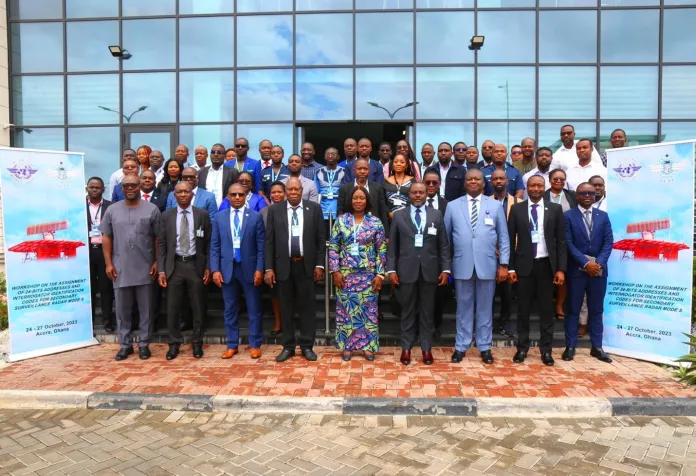The Ghana Civil Aviation Authority (GCAA) is leading the charge in aviation safety, spearheading an initiative to enhance aircraft identification and safety within the country’s airspace through the adoption of Radar Mode S technology.
This innovative approach assigns unique 24-bit addresses and interrogator identification codes to aircraft, improving their identification and separation while bolstering aviation safety.
In a workshop held in Accra, key stakeholders from the aviation industry, including air traffic controllers, pilots, engineers, and regulatory authorities, gathered to discuss the challenges and potential benefits associated with implementing Radar Mode S in Ghana.
This technology assigns a distinct identifier to each aircraft, enabling radar systems to retrieve crucial information about altitude, bearing, and more, ultimately displaying this data on air traffic controllers’ screens.
The adoption of this technology underscores Ghana’s commitment to aviation safety, exemplified by the impressive Effective Implementation score of 89.89 percent awarded by the International Civil Aviation Organization (ICAO) during the Coordinated Validation Mission (ICVM).
Ing. Charles Kraikue, Director General of the GCAA, highlighted the significance of harmonizing SSR Mode S 24-bit addresses and codes II, emphasizing their pivotal role in air traffic management, and the importance of adapting to the evolving requirements of the post-Covid 19 era.
Ing. Kraikue stressed that the allocation of SSR Mode S 24-bit addresses and II codes is more than just a procedural exercise.
It is a fundamental element in air traffic management, ensuring precise aircraft identification and information transmission, leading to enhanced safety and efficiency in the aviation industry.
He added that the GCAA is committed to working with stakeholders and partners to maintain the highest levels of safety in Ghana’s airspace.






























































